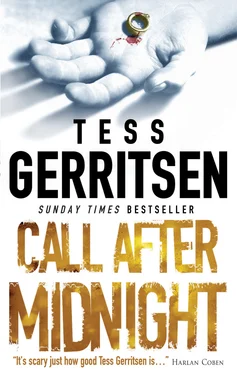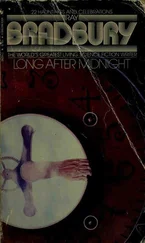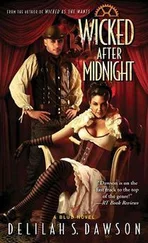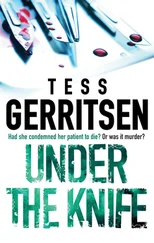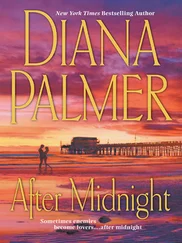“There’s so much I’ll never understand about his death, Abby. That man in the State Department—he kept hounding me for answers, and I couldn’t give him a single one! Oh, I know it was just his job, but he brought up these… possibilities that have bothered me ever since. I’ve started wondering about Geoffrey. More and more.”
“You weren’t married that long, Sarah. Heck, my husband and I were married thirty years before we split up, and I never did figure out the jerk. It’s not surprising you didn’t know everything there was to know about Geoffrey.”
“But he was my husband!”
Abby fell silent for a moment. Then, with some hesitation, she said, “You know, Sarah, there was always something about him…. I mean, I never felt I could get to know him very well.”
“He was shy, Abby.”
“No, it wasn’t just shyness. It was as if—as if he didn’t want to give anything away. As if—” She looked at Sarah. “Oh, it’s not important.”
But Sarah was already thinking about what Abby had said. There was some truth to her observation. Geoffrey had been an aloof man, not given to lengthy or revealing conversations. He’d never talked much about himself. He had always seemed more interested in her—her work, her friends. When they first met, that interest had been flattering; of all the men she’d known, he was the only one who’d ever really listened .
Then for some reason, another face sprang to mind. Nick O’Hara. Yes, that was his name. She had a sudden, vivid memory of the way Nick O’Hara had studied her, the way his gray eyes had focused on her every expression. Yes, he’d listened, too; but then, it had been his job. Had it also been his job to torment new widows? She didn’t want to think about him. She never wanted to speak to the man again.
Sarah put the plastic cover over the microscope. She thought about taking her data book home. But as she scanned the open page, it occurred to her that the column of entries symbolized the way she was living her life. Neatly, carefully and precisely within the printed boundaries.
She closed the book and put it back on the shelf.
“I think I’m going home,” she said.
Abby nodded her approval. “Good. No sense burying yourself in here. Forget about work for a while.”
“Are you sure you can handle the extra load?”
“Of course.”
Sarah took off her lab coat and hung it by the door. Like everything else in the room, her coat looked too neat, too clean. “Maybe I will take some time off, after the funeral. Another week. Maybe a month.”
“Don’t stay away too long,” said Abby. “We do want you back.”
Sarah glanced around one last time to make sure things were tidy. They were. “I’ll be back,” she said. “I just don’t know when.”
* * *
THE COFFIN SLID down the ramp and landed with a soft thud on the platform. The sound made Nick shudder. Years of packing off dead Americans hadn’t dulled his sense of horror. But like everyone else in the consular corps, he’d found his own way to handle the pain. Later today he’d take a long walk, go home and pour himself a drink. Then he’d sit in his old leather chair, turn on the radio and read the newspaper; find out how many earthquakes there’d been, how many plane and train and bus crashes, how many bombs had been dropped. The big picture. It would make this one death seem insignificant. Almost.
“Mr. O’Hara? Sign here, please.”
A man in an airline uniform held out a clipboard with the shipment papers. Nick glanced over the documents, quickly noting the deceased’s name: Geoffrey Fontaine. He scrawled his signature and handed back the clipboard. Then he turned and watched as the coffin was loaded into a waiting hearse. He didn’t want to think about its contents, but all at once an image rose up in his mind, something he’d seen in a magazine, a picture of dead Vietnamese villagers after a bombing. They had all burned to death. Is that what lay inside Geoffrey Fontaine’s coffin? A man charred beyond recognition?
He shook off the image. Damn, he needed a drink. It was time to go home. The hearse was headed off safely to a designated mortuary; as previously arranged, Sarah Fontaine would take charge from there. He wondered if he should call her just one more time. But for what? More condolences, more regrets? He’d done his part. She’d already paid the bill. There was nothing else to say.
By the time he got to his apartment, Nick had shoved the whole grisly affair out of his mind. He threw his briefcase onto the couch and went straight to the kitchen, where he poured out a generous glass of whiskey and slid a TV dinner into the oven. Good old Swanson, the bachelor’s friend. He leaned back against the counter and sipped his drink. The refrigerator began to growl, and the oven light clicked off. He thought of turning on the radio, but he couldn’t quite force himself to move. So ended another day as a public servant. And to think it was only Tuesday.
He wondered how long it had been since he’d been happy. Months? Years? Trying to recall a different state of mind was futile. Sights and sounds were what he remembered—the blue of a sky, the smile on a face. His last distinct image of happiness was of riding a bus in London, a bus with torn seats and dirty windows. He’d just left the embassy for the day and was on his way home to Lauren….
The apartment buzzer made him jump. Suddenly he felt starved for company, any company, even the paperboy’s. He went to the intercom. “Hello?”
“Hey, Nick? It’s Tim. Let me in.”
“Okay. Come on up.”
Nick released the front lock. Would Tim want supper? Dumb question. He always wanted supper. Nick poked in the freezer and was relieved to find two more TV dinners. He put one in the oven.
He went to the front doorway and waited for the elevator to open.
Tim bounded out. “Okay, are you ready for this? Guess what my FBI friend found out?”
Nick sighed. “I’m afraid to ask.”
“You know that guy, Geoffrey Fontaine? Well, he’s dead all right.”
“So what’s new?”
“No, I’m talking about the real Geoffrey Fontaine.”
“Look,” said Nick. “I’ve pretty much closed my file on this case. But if you want to stay for dinner…”
Tim followed him into the apartment. “See, the real Geoffrey Fontaine died—”
“Right,” said Nick.
“Forty-two years ago.”
The door slammed shut. Nick turned and stared at him.
“Ha!” said Tim. “I thought that’d get your attention.”
THE DAY SMELLED of flowers. On the grass at Sarah’s feet lay a mound of carnations and gladioli and lilies. For the rest of her life, the smell would sicken her. It would bring back this hilltop and the marble plaques dotting the shorn grass and the mist hanging in the valley below. Most of all, it would bring back the pain. Everything else—the minister’s words, the squeeze of her good friend Abby’s hand around her arm, even the first cold drops of rain against her face—she scarcely felt, for it was peripheral to the pain.
She forced herself not to concentrate on the gash of earth at her feet. Instead she stared at the hill across the valley. Through the mist she could see a faint dappling of pink. The cherry trees were blooming. But the view only saddened her; it was a springtime Geoffrey would not see.
The minister’s voice receded to a faintly irritating drone. A cold drizzle stung Sarah’s cheeks and clouded her glasses; fog moved in, closing off the world. Abby’s sudden nudge brought her back to reality. The casket had been lowered. She saw faces, all watching her, all waiting. These were her friends, but in her pain she scarcely recognized them. Even Abby, dear Abby, was a stranger to her now.
Читать дальше
